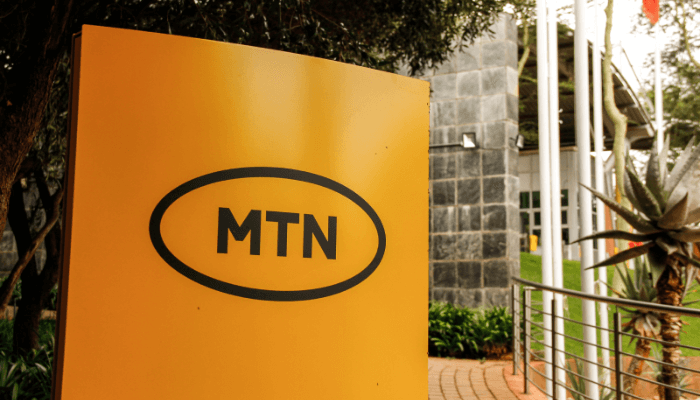Mental health challenges are a largely ignored issue in the South African tech startup ecosystem
According to research by the University of Western Cape, South Africa has one of the highest startup failure rates in the world, with 70% to 80% of businesses failing within five years of commencing operations.
In addition to this cloud of failure constantly hovering above entrepreneurs’ heads, a joint research between the University of California and Stanford University also revealed that entrepreneurs generally have lower initial earnings, lower earnings growth, lower long-term earnings, longer work hours, fewer weekends and holidays, more responsibility, chronic uncertainty, and greater personal risk and struggle.
Considering all these factors, the decision to become a startup founder seems ill-advised. However, economic growth is driven by the jobs created by founders who brave the unfavourable factors. According to recent data, small and medium enterprises, including startups, create at least 55% of all employment opportunities in South Africa.
With the mental pressure of entrepreneurship clear and the benefits that these risk takers bring to the economy well established, more attention should be paid to protecting their mental wellbeing.
According to Will Green, director at Co.lab, the reason the topic of mental health does not come up in conversations about the South African tech ecosystem is the seemingly taboo nature of the unglamorous aspects of entrepreneurship, such as failure.
“In our ecosystem, failure and challenges are not considered a badge of honour. So it becomes hard for entrepreneurs to discuss these, despite the frequency by which they happen. The sad thing is that the more these are not discussed, the less successful entrepreneurs we are going to have because everyone will keep succumbing to the same issues,” Green told TechCabal.
The loneliness of the entrepreneurship path is reiterated by founders who have faced mental health challenges in their journey. One of these is Zwelakhe Gila, a South Africa-born founder who created Chommie Bites, one of the first ecommerce startups in Namibia. According to him, the challenges were created by the pressure he put on himself to succeed.
“As an entrepreneur, you find motivation in the work you do and the wins that you bag in your journey. But the problem is that those wins are rare when you are starting off. What’s more common are the failures and I feel like we don’t prepare ourselves mentally for those. The pressures and expectations that you put on yourself and are placed on top of you become too much to handle,” Gila explained.
According to Zimkita Nogela, founder of Adored, a digital gift cards startups, one of the reason the mental health issue has not been discussed much in the ecosystem is that the ability to function through anxiety, stress, depression, and other conditions is seen more as a badge of honour than a challenge that needs to be addressed.
“A lot of entrepreneurs or founders pride themselves in being able to function under intense pressure. But that’s definitely not healthy in the long run, because it leads to a lot of burnout. What is even more painful is that coming out of burnout is quite an undertaking. Having been through burnout myself in the past, it took me quite a long time to get out of that and I wish I could have addressed it before it took hold,” Nogela told TechCabal.
According to Raeesa Gabriels, founder of Level Finance, a fintech startup focusing on financial wellness, founders of colour seem to be disproportionately affected by mental health issues like stress, depression, and anxiety.
“Most of the mental health issues stem from financial issues in business. Unfortunately, you find that founders of colour do not have families and other immediate forms of financial alleviation when things get tough. Additionally, it is a well established fact that founders of colour do not get as much financial backing as other groups. This creates a situation whereby founders are pretty much on their own when it comes to facing business changes head on, which further debilitates their mental well being,” Gabriel told TechCabal.
The funding data available backs Gabriel’s assertion. According to data from dealbase.africa, a venture funding tracking platform, only 45% of funding went to founding teams with at least one non-white founder in 2022. For context, 75% of formal SMEs, including tech startups, were owned by black founders, compared to 37% by white founders.
Despite the challenges that face the fight against mental challenges, there are initiatives in the South African ecosystem tackling the issue head on. One of these is the South African Breweries (SAB) Foundation’s entrepreneurship support program which assists founders, especially those from underrepresented communities, to create sustainable businesses.
During the COVID-19 pandemic in 2020, the foundation started a program to help founders deal with the challenges brought about by the tough business climate. The support comprised both financial and mental health support. This support was so in demand that the program was extended beyond the pandemic, a clear signal of the extent of the mental health challenges among South African entrepreneurs.
“We launched what we call the “Restore” program to support entrepreneurs so that they can be able to effectively run their businesses. We designed it in a way such that they could attend group sessions and the group conversations were really valuable, because during that process, the entrepreneurs learnt that they were not on their own. We also connected the entrepreneurs to qualified therapists who engaged with them in one-on-one sessions,” said Itumeleng Dhlamini, social innovation specialist at the SAB Foundation.
Dhlamini further explained that the initiative was continued beyond the pandemic because they realised the value and need for such a service to entrepreneurs who could not access perks like therapy.
“We realised that there is a real need for this kind of initiative going forward. Additionally, we also received feedback from entrepreneurs who really wanted the program to continue. And as you know, entrepreneurs who are still at the early stages of their businesses most of the time don’t have access to medical aid for things like therapy,” she added.
Startups are also playing their role in trying to address the mental health issue in South Africa. One of these is Ollie Health, whose core offering is a mental health credit wallet which offers team members access to live therapy sessions from anywhere in the world.
“Unfortunately, only 27% of South Africans with mental health disorders receive mental health treatment. Socio-economic issues such as poverty, gender-based violence, and inequality hinder South Africa’s ability to address and support struggling individuals. Ollie Health wants to help plug this gap by really trying to make access to mental health care as easily accessible as possible,” said Marc Gregory Knowles, co-founder and CEO of Ollie Health.
According to the startup’s figures, most of the users of its platform are from South Africa, further highlighting the need for innovative startups like Ollie Health in the country.
The impact of the South African tech ecosystem’s lacklustre response to the growing mental health crisis is huge. According to Green, changing the status quo will require active efforts by a wide range of ecosystem stakeholders.
“In my view, what needs to be done better is to effectively shine on this issue and to make entrepreneurs understand that they are not alone in this fight and they don’t have to be. The ecosystem also has to create an environment where mental health professionals like counsellors, psychologists, and psychiatrists are easily accessible to startup personnel who need them. The importance of creating this environment cannot be overstated enough because without these entrepreneurs, the ecosystem ceases to exist,” he added.
For Nogela, awareness about mental health challenges in the ecosystem has to go beyond just commemorations on specific dates and focus on creating a continuous effort because entrepreneurs also face these problems everyday.
“Integrating mental well being as part of our ecosystem’s culture would make it easier for people to talk about it and seek help. By creating a culture of aware and open dialogue about this issue, we can create a sense of community which would make it easier for other entrepreneurs to want to express themselves,” she told TechCabal.
Gabriels, on the other hand, believes that addressing underlying causes of mental health challenges, such as the inequality in access to financial resources in the ecosystem, will go a long way in alleviating the issue.
“We have to address the elephant in the room or else we are going to just keep moving in circles. There has to be access to opportunities which would improve these entrepreneurs’ chances of success. Addressing this issue would play a significant role in reducing the mental load for founders and take us a step closer to achieving mental well being in the ecosystem,” she said.
According to statistics, one in six South Africans suffer from anxiety, depression, or substance abuse problems. Additionally, twenty three South Africans commit suicide every day. There is clearly a mental health crisis in the country and entrepreneurs are not any less vulnerable. As a matter of fact, they might be prone to mental health challenges due to the nature of their profession.
For small businesses and tech startups playing such a vital role in employment creation and overall economic growth in South Africa, it is important to look out for those behind these enterprises and ensuring their mental wellbeing is a significant step to doing this.





















